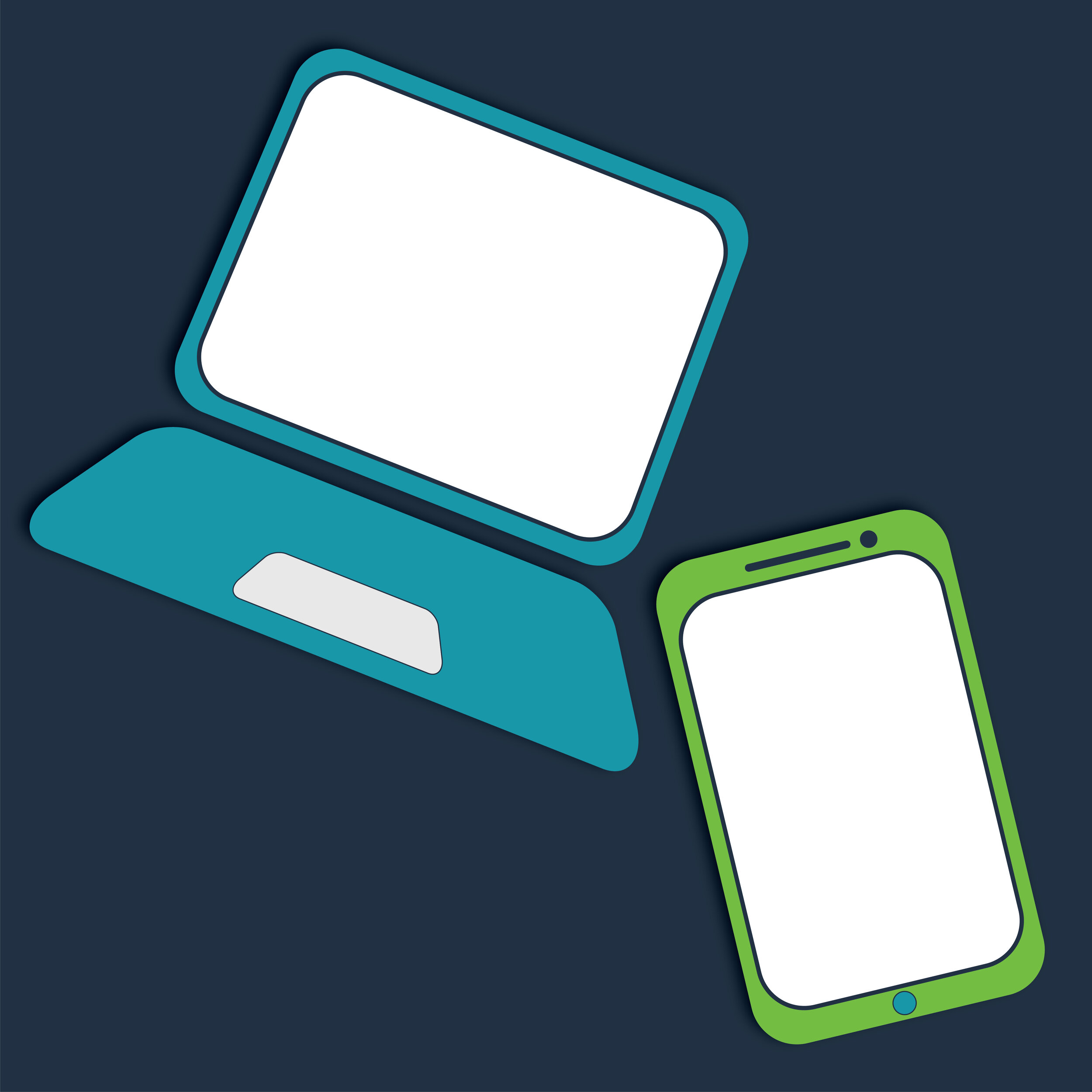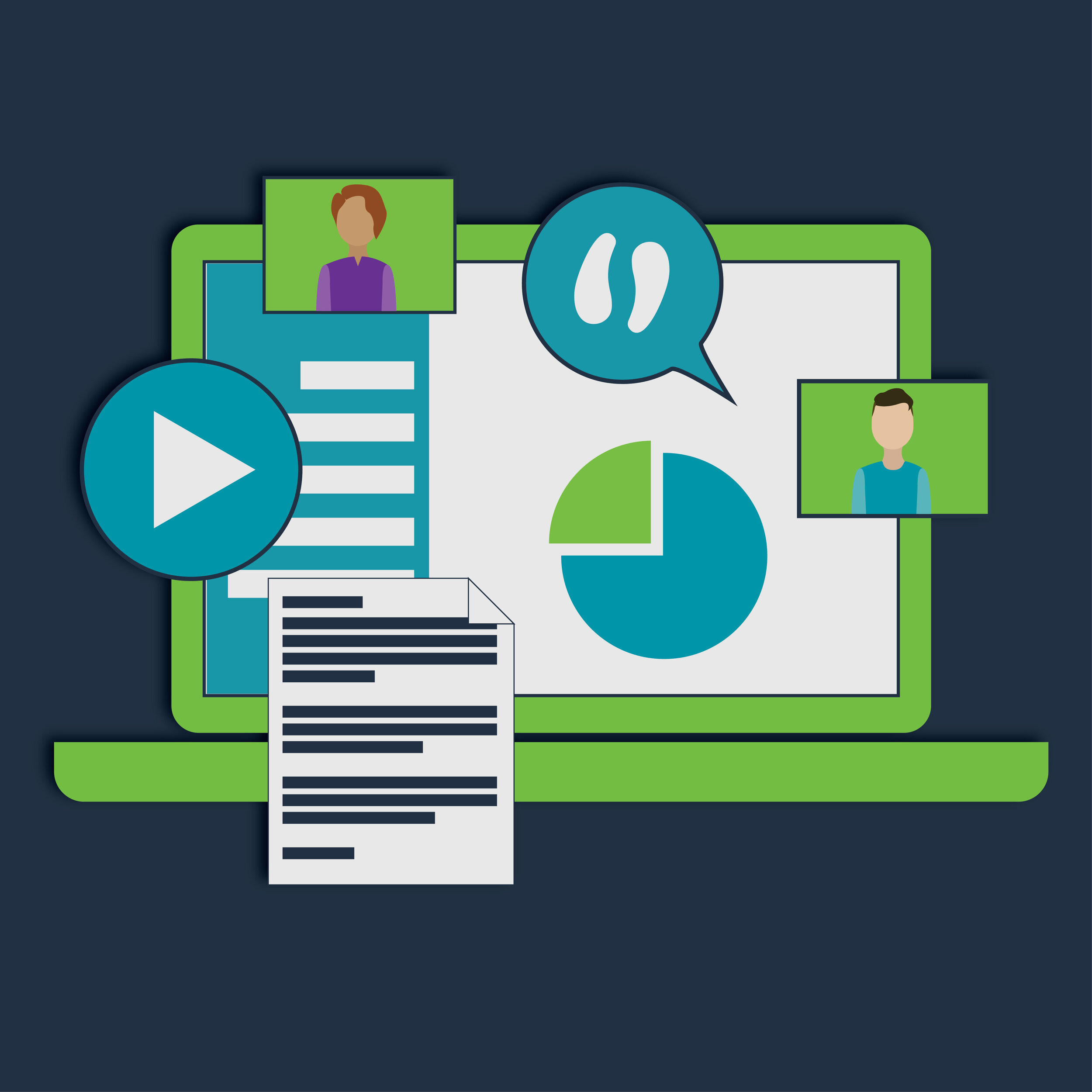Discounts that Help Schools Close Digital Learning Gaps
CESA Purchasing and the Wisconsin Department of Public Instruction (DPI) are working together to bridge the digital learning gap.
The Digital Learning Bridge (DLB) is a collaboration between CESA Purchasing and the Wisconsin Department of Public Instruction (DPI). The purpose of the DLB is to close the digital gap that exists for students without internet connectivity and/or the hardware/software necessary for digital learning. CESA Purchasing offers purchasing contracts with discounts and value-added benefits so schools and libraries can make the most of their budgets and close the digital learning gap.
NOTE: This is a business (Vendor) to business (School District/Library) discounted program. These are different than consumer programs available. The deals available through the Digital Learning Bridge are only available to school districts and libraries to purchase and provide to students and faculty. Whom districts/libraries decide to purchase for is a local decision. Families, teachers, and library patrons are not able to contact vendors directly to take advantage of the program discounts.
Contract Categories
Internet Service Providers (ISPs) across the state are providing discounts for schools in order to purchase internet for students. There are a variety of choices, all listed on the Digital Learning Bridge Matrix. The decision for who receives this service is made at the local level. Districts can view DPI’s internet provider coverage map to determine serviceability. Districts can also obtain specific information on vendor serviceability for each student address. Districts start this process with DPI by acknowledging the data sharing agreement in the WISEadmin Portal and completing this form to request a sample address file template. Once identified, the school/district obtains permission from the family before contracting for service. The school/district pays the bill.
Hardware can include Chromebooks, laptops, iPads, microphones, headsets, cameras, and more.
Software can include communication programs, learning management systems, and other packages needed to facilitate online learning.
Cybersecurity can include Firewalls, virtual security resources, training, assessments, and testing.
Vendors by category
Internet Providers
Amery Telecom & Somerset | Amherst Communications | Astrea | AT&T (not eligible for voucher funds) | Baldwin LightStream
Belmont & Cuba City | Bergen & Sharon | Bevcomm | Bloomer | Bruce | BugTussel | Cellcom | Citizens Connected
Clear Lake NextGen Broadband | Cochrane CCT | Comcast | Coon Valley Farmers | Door County Broadband | Frontier Communications
Hillsboro | HughesNet | Kajeet | Lakeland Communications | LaValle | Lynxx | Marquette Adams | Mosaic Technologies | Mount Horeb
Norvado | Nsight | Ntech | Richland-Grant | Siren | Solarus | Spectrum | Tri-County | Union | US Cellular | Verizon | Vernon
Wittenberg
Hardware - Technology & Devices
Bluum | CDW-G | Heartland Business Systems | Lightspeed | MNJ Technology
School Specialty | Bluum (formally Tierney Brothers) | Vanguard Computers | 2nd Gear
Software/SaaS - Learning Management Systems, Communication Services, etc.
Distribu-Q | Edpuzzle | Education Elements | Google for Education | Impero | IXL | KnowBe4 | LearnPlatform | Newsela | Otus | Schoology
Cybersecurity
CDW-G | Heartland Business Systems | Telos | Bluum (formally Tierney Brothers)
Internet Service Providers (ISP)
How to purchase from an internet provider (steps 1 & 2 are for schools only)
Click Get Started - Internet below
Compare vendors on the Digital Learning Bridge Matrix
Contact the listed ISP representative
Mention CESA Purchasing
Frequently Asked Questions (FAQs)
What is the history of the Digital Learning Bridge?
The Digital Learning Bridge (DLB) began in 2020 as a collaboration between CESA Purchasing and the Wisconsin Department of Public Instruction (DPI). The purpose of the DLB is to close the digital gap that exists for students without internet connectivity and/or the hardware/software necessary for digital learning.
Between September 2020 and June 2022, DPI earmarked $2,000,000 for LEAs to utilize in response to COVID-19 and address the digital learning gap. Now that the $2M voucher program has ended, CESA Purchasing continues to provide contracts with discounts and value-added benefits so schools and libraries can save time and money. The Digital Learning Bridge will remain a core resource of CESA Purchasing.
How do I receive a voucher?
Vouchers are no longer available as Digital Bridge funding expired on June 30, 2022. However, Wisconsin schools can continue to access savings through DLB purchasing contracts.
Are there funding opportunities available?
School funding sources may include private philanthropy, local budget, and ESSER funds. ESSER funds have broad use including, purchasing educational technology and training (including hardware, software, Internet & cybersecurity). LEAs need to obligate ESSER I funds by September 30, 2022, ESSER II funds by September 30, 2023, and ESSER III funds by September 30, 2024.
The Emergency Connectivity Fund is another funding source schools and libraries can use to purchase from the Digital Learning Bridge. It supports schools and libraries with purchasing equipment and Internet services through December 2023 to close the homework gap for students and library patrons with unmet needs. In total for all three funding application windows, Wisconsin schools and libraries have requested $112,807,014.64 in funding. As of June 1, 2022, USAC has commited $72,493,229.79 for Wisconsin schools and libraries and has disbursed $24,668,843.23.
Broadband Funding Quick Reference Guide
Can I request a vendor?
Yes! Click here to request a vendor. We cannot guarantee that a vendor will be added to the eligibility list.





